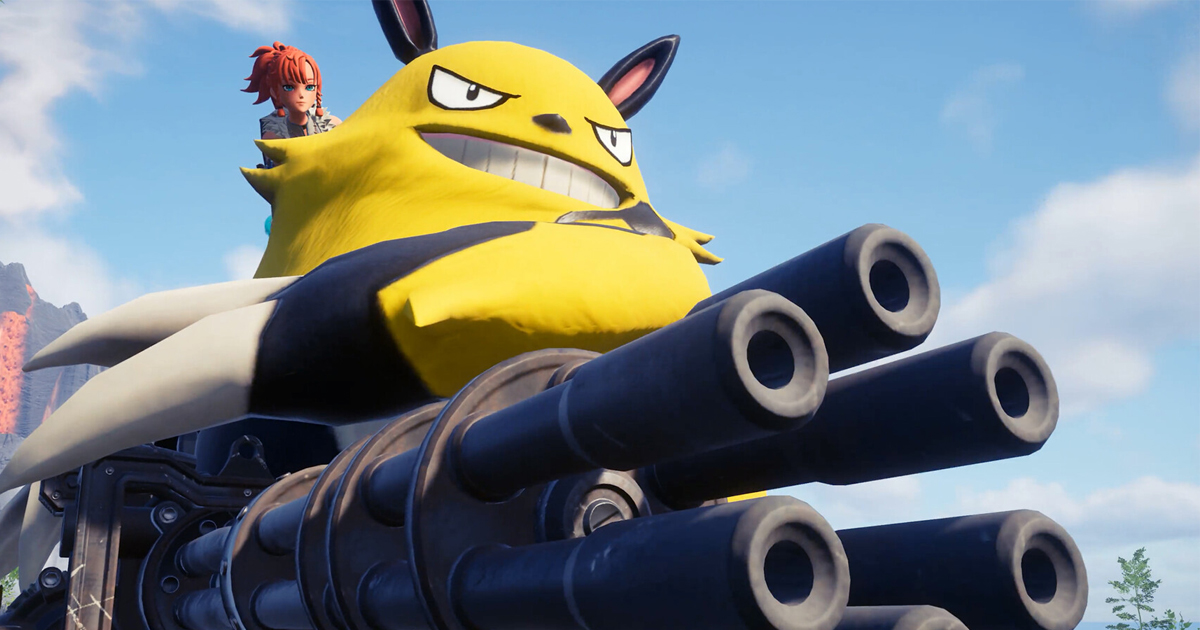Experts from Futura Digital have prepared a column for App2Top about an emerging legal conflict between Nintendo, its affiliate The Pokémon Company, and Pocketpair, who released the multiplatform blockbuster Palworld earlier this year.
Alexandra Kurdyumova, co-founder of Futura Digital, and Evgenia Shikholeva, junior lawyer of Futura Digital
On September 19, Nintendo announced on its official website that they, alongside The Pokémon Company, have filed a lawsuit in the Tokyo District Court against the creators of Palworld for patent infringement.
Brief overview
Palworld is an adventure game created by the Japanese studio Pocketpair, released in early access at the beginning of 2024. The game's events unfold in an open world inhabited by creatures resembling animals.
Many fans immediately noticed the similarity between the creatures in Palworld and the iconic Pokémon. The game even received an unofficial nickname — "Pokémon with guns."
Why aren't the companies citing copyright infringement?
Interestingly, Nintendo isn't alleging copyright infringement but rather focuses on patent rights. It's well-known that games and their elements are protected by copyright, and one might think Nintendo could accuse Palworld of copying their characters — Pokémon.
In our opinion, the fact the company isn't referring to copyright appears to be a deliberate decision. Proving copyright infringement would be challenging since the worlds and character designs are quite different, and any similarities might only be indirect. The game is more inspired by Pokémon than it actually copies the art. However, proving patent infringement is also a difficult task.
What are patents in games?
The main claim by Nintendo and The Pokémon Company pertains to patent rights. Patents protect inventions, and the ability to patent elements of a video game is limited. In practice, it's usually game mechanics that get patented, but even that is achievable by few companies. Here are some examples:
- Nemesis System. In 2021, Warner Bros. patented the Nemesis system — a core mechanic in Shadow of War and Shadow of Mordor games. The system allows regular orc enemies to evolve based on their interactions with the player. For example, if an orc survives, it becomes stronger, gains new abilities, and can even remember past battles upon the next encounter with the player.
- Dual Reality Gameplay. In the game The Medium, the player controls a character operating simultaneously in the real world and in the spirit world. The game's developer, Bloober Team, coined this as "dual reality gameplay" and applied for a patent on this mechanic. The patent covers simultaneous control of characters in multiple virtual worlds.
What is known about The Pokémon Company's patents?
Unfortunately, the specifics of what is patented and what Nintendo and The Pokémon Company are citing are still unknown. Palworld themselves have pointed out, "we don't understand what we are being accused of."
Currently, we understand that the plaintiff companies own several patents and have filed multiple patent applications that could be relevant to this case. For instance, in May 2024, The Pokémon Company filed two patents in the US, which were recently published. Applications for these same patents were filed in Japan in 2021.
What are these patents?
A system that allows a player to interact with characters in a virtual space. The patent describes how a player can determine targeting directions and deploy items or combat characters in those directions.
Transition between ground and aerial movement. The patent explains the automatic switching of a character from aerial to ground space as they approach the ground, and vice versa.
It's possible these are the patents Nintendo considers infringed upon in Palworld. But further details are yet to emerge.
What's next?
It's important to note that winning a patent dispute is a challenging task. To prove direct infringement, it's necessary to demonstrate that the product contains all the features and limitations outlined in the patent claim. If even one element is missing, the plaintiff cannot win the case.
We still need to see how this dispute unfolds, but there are already certain concerns: the patents cover fundamental game mechanics used by many companies. If The Pokémon Company manages to win, this could set a precedent that allows eliminating competitors by citing patent violations.
Cases of successful lawsuits over game mechanics patents are already known. For instance, in 2019, Capcom won a case against Koei Tecmo in the Japanese Intellectual Property High Court. The violations concerned two patents: for controller vibration warning about enemies and for a method of unlocking bonus content through the use of prior game disks.
It's also notable that Pokémon has previously been at the center of a patent dispute. In 2022, K.Mizra won a case against Niantic in Germany. The court found that Niantic's game Pokémon Go, developed with support from The Pokémon Company, violated the plaintiff's patent. The contentious patent simplified device interactions to enable users to participate in multiplayer mode.
Let's see how the dispute between Nintendo and Pocketpair concludes; it is certainly worth following closely!


